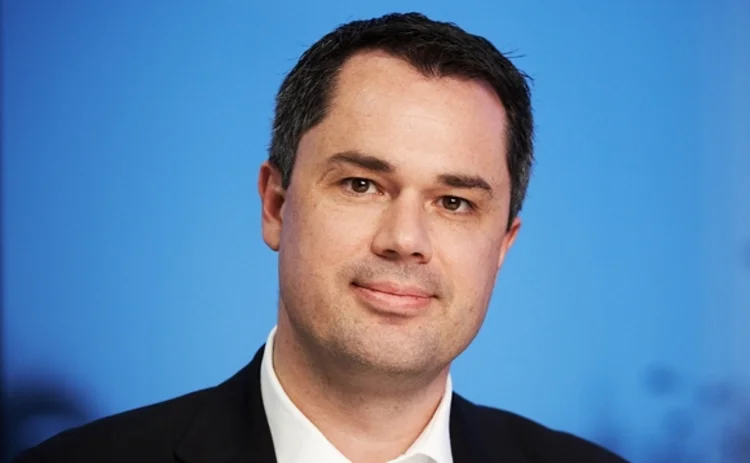Open Platform: New Windows on Financial Technology

The next generation of Microsoft operating systems and productivity applications will soon be appearing in our workplaces. These applications have been radically re-thought, and will offer an opportunity to change the way we work in 2013. In financial circles, however, reaction has been relatively muted.
An increasing number of professionals are using tablets and smart phones in the workplace, sometimes bringing their own personal devices at work (BYOD). We expect that corporate issuance of such devices will start to gain momentum as their potential value in the workplace is better understood. Microsoft has already anticipated the trend, and has demonstrated Surface for Windows 8 Pro at CES recently, a tablet solution for business with the potential to replace desktops and laptops, for early 2013.
The variants of the Windows 8 operating system are intended to provide a consistent experience across the variety of devices that support our daily lives; desktops, laptops, tablets & smartphones. The re-imagined interface employs large, vividly colored tiles to present dynamic live content. It has been designed with the uptake of touch screen in mind─for both desktop and mobile devices. Touch-operated devices have surrounded us for several years but, oddly enough, we are yet to see a significant uptake in the workplace. This latest generation of Microsoft software may be the enabler to change that situation.
Not Revolutionary, But Evolutionary
The big unknown at this time is how reactive the providers of enterprise and line of business applications will be to these changes. Microsoft's 2011 future productivity concept video presented a world in the not-too-distant future where interaction with line-of-business technology happened on multiple devices, and offered simplified interfaces in line with what is now being released in Windows 8 and Office 2013. The video depicted the next generation of application intelligence, which could digest and process information, and provide answers to business related questions in real time, anywhere, on any device. While Microsoft may have created a platform and the design guidlines to realise this vision, it is now down to the independent software vendors to create the next generation of business applications that leverage the platform.
The implications in the financial and numerate professions are becoming clear, and our ways of working with financial line-of-business applications are set to change. Examples, while not abundant, do exist. One professional, a corporate treasurer piloting multi-device access to financial applications, reports reviewing and approving real time payments information on a tablet during time otherwise wasted─for example, whilst travelling across the United States on an aircraft. He also describes pulling up financial summaries, and being able to drill into the details on a tablet in ad-hoc meetings with his CFO, away from a workstation terminal. It's not revolutionary; rather, a significant, natural-feeling evolution.
The next generation of line of business application will present real time, actionable intelligence and the opportunity to act immediately from anywhere at any time. Microsoft live tiles tell us we've got emails to read, but new tiles need to be created to inform us that there is a bottleneck in a business process or that financial risks need to be hedged.
The next generation of line-of-business application will present real time, actionable intelligence and the opportunity to act immediately from anywhere at any time. Microsoft live tiles tell us that we've got emails to read, but new tiles need to be created to inform us that there is a bottleneck in a business process, or that financial risks need to be hedged. These are altogether more complex undertakings, but they are by no means unachievable, and the potential benefit is enormous. Microsoft has paved the way for other line-of-business application providers to bring this type of experience into our working lives.
Microsoft's design concept isn't just re-imagining Windows, or the ubiquitous Office suite. Nor is it just building on existing trends of mobility and accessibility. All the evidence from early adopters of Windows 8 is that the fluid working it inspires will spur a reimagination of the way professionals engage with technology. The big question is how long will enterprise and financial software providers need to do their part in making Microsoft's future vision a reality?
Paul Higdon is the chief technology officer at IT2 Treasury Solutions. The views expressed are those of the author, and do not necessarily represent those of IT2 Treasury Solutions or Waters.
Only users who have a paid subscription or are part of a corporate subscription are able to print or copy content.
To access these options, along with all other subscription benefits, please contact info@waterstechnology.com or view our subscription options here: https://subscriptions.waterstechnology.com/subscribe
You are currently unable to print this content. Please contact info@waterstechnology.com to find out more.
You are currently unable to copy this content. Please contact info@waterstechnology.com to find out more.
Copyright Infopro Digital Limited. All rights reserved.
As outlined in our terms and conditions, https://www.infopro-digital.com/terms-and-conditions/subscriptions/ (point 2.4), printing is limited to a single copy.
If you would like to purchase additional rights please email info@waterstechnology.com
Copyright Infopro Digital Limited. All rights reserved.
You may share this content using our article tools. As outlined in our terms and conditions, https://www.infopro-digital.com/terms-and-conditions/subscriptions/ (clause 2.4), an Authorised User may only make one copy of the materials for their own personal use. You must also comply with the restrictions in clause 2.5.
If you would like to purchase additional rights please email info@waterstechnology.com
More on Trading Tech
Brokers must shift HFT servers after China colocation ban
New exchange guidance drives rush for “proximity colo” in nearby datacenters.
RBC takes European traders to the Endgame
The Canadian bank’s complex execution algorithm, increasingly popular with traders stateside, is making landfall in Europe. But the region’s fragmented markets mean adoption is not simply a matter of plug-and-play.
Banks hope new axe platform will cut bond trading costs
Dealer-backed TP Icap venture aims to disrupt dominant trio of Bloomberg, MarketAxess and Tradeweb.
Editor’s Picks: Our best from 2025
Anthony Malakian picks out 10 stories from the past 12 months that set the stage for the new year.
The next phase of AI in capital markets: from generative to agentic
A look at some of the more interesting projects involving advanced forms of AI from the past year.
Will overnight trading in equity markets expand next year? It’s complicated.
The potential for expanded overnight trading in US equity markets sparked debate this year, whether people liked it or not.
WatersTechnology latest edition
Check out our latest edition, plus more than 13 years of our best content.
The total portfolio approach gains momentum: Building the right tech foundation for success
The rationale for the TPA, and the crucial role technology plays in enabling such an approach







